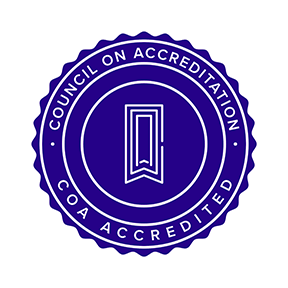6 Tips to Teaching Your Foster Child About Gun Violence to Help Them Stay Safe
30th of June 2022
 The rise of gun violence across America is causing shockwaves and panic throughout our communities. It seems as if every time we turn on the TV, or turn on the computer, we are seeing more and more headlines about innocent people, including children, being gunned down. These news stories can cause youth to experience sadness, anxiety, grief or depression. Some children may also fear leaving their homes, or fear going to school.
The rise of gun violence across America is causing shockwaves and panic throughout our communities. It seems as if every time we turn on the TV, or turn on the computer, we are seeing more and more headlines about innocent people, including children, being gunned down. These news stories can cause youth to experience sadness, anxiety, grief or depression. Some children may also fear leaving their homes, or fear going to school.
Some youth may even become triggered, especially if they’ve already experienced violence and loss in their homes. Although we cannot control what happens in the world, we do have the power to empower our youth with the skills they need to increase the odds of their safety and well-being. Here are a few ways you can help your youth stay safe.
- Have an honest talk about gun violence: For a lot of parents, having discussions about the harsh realities of the world can seem overwhelming. However, not talking about what’s going on in the world, or ignoring it, can actually do more harm than good. Gun violence isn’t going away, and youth are often one of the biggest targets perpetrators look for. Be sure to start an open dialogue about gun violence with your child. Ask them questions about how they are feeling regarding hearing about violence and how it’s affecting them. Ask them what they need to feel safe. To help your child feel safe with expressing their feelings, you may try describing a time in your life when you’ve witnessed or experienced violence, and how you handled it (if it was a positive approach).
- Educate Your Youth: Talk to youth about some warning signs to look out for, which can include someone expressing rage in an unhealthy manner, talking about hurting others or getting revenge. Encourage teens to stay away from crime-ridden areas, and to come home at a reasonable hour. Encourage youth to always be aware of their surroundings and pay attention to and report anything that looks suspicious.
- Develop a plan of action that include all probable scenarios that could happen, such as a shooting at a school, a park, a mall, etc. Go over the most important actions youth can take to protect themselves. Have them look for places they can go that might be safe if violence strikes. Have them think about the exit points in public places.
- Consider Active Shooter Classes: See if your community offers classes to help youth learn the skills they need to keep themselves safe around an active shooter.
- Some perpetrators target victims who seem naïve or timid. So have your child practice good body language, and to maintain good eye contact. Encourage them to speak clearly, and with authority, especially in public settings. Taking self-defense classes may help some youth gain more confidence and help them feel more secure in public.
- If gun violence is affecting your child’s mental health, and they’ve experienced past trauma, consider signing them up to see a therapist who specializes in trauma. Some youth need to speak with a trusted professional who can help them learn specific coping skills that will help them feel more secure, and to also heal from their past childhood wounds.
 Eve Powers, Foster Care Marketing Specialist
Eve Powers, Foster Care Marketing Specialist
Eve has a strong commitment to helping foster youth and their families thrive and live successful lives. A former foster youth, Eve obtained her bachelor’s and master’s degree in Communications from California State University, San Bernardino, and is a certified Holistic Life Coach, motivational writer, self-help author and celebrity interviewer. Beyond the Trinity Youth Services blog, Eve’s articles can be found in numerous platforms including Foster Focus Magazine, Heart & Soul Magazine, BET Centric and Huffington Post. A passionate advocate for the LGBTQ community, Eve continues to educate, support and mentor foster youth throughout Southern California.




